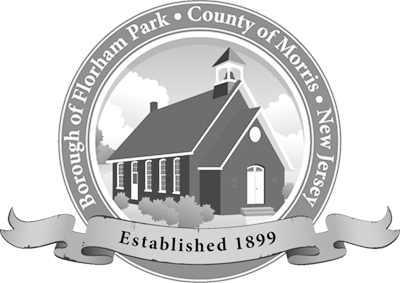Tax Collection Information
New Jersey Taxpayer Bill of Rights:
NJ Taxpayer Bill of Rights
Division of Taxation Property Tax Relief Program:
www.state.nj.us/treasury/taxation/relief.shtml
Executive Order Installment Plan:
Executive Order – Water Local Finance Notice
2025 Tax Sale:
The Public Auction will be held on the 17th day of June 2025, at 11:00AM, or at such later time and place to which said sale may be adjourned. The tax sale will be held online.
The link to the auction site is https://florhampark.newjerseytaxsale.com/
Assessments: Any questions concerning your assessment should be directed to the Tax Assessor. The Collector is responsible for the billing and collection of taxes only.
Deductions: Please contact the Tax Assessor for information regarding Veteran or Widow of a Veteran deductions and for Senior, Disabled or Surviving Spouse. Tax Assessor’s office: 973-410-5353.
Tax Bills/Dues Dates: Tax bills are mailed annually in July. Each bill contains four (4) tear off stubs for the 3rd and 4th quarters of the current year, and the 1st and 2nd quarters of the next year. Original bills are mailed to those who pay their own taxes, and to banks and mortgage companies. Property owners who pay their taxes through their mortgage company receive advice copies of the tax bill. This advice copy can be used to make tax payments if a mortgage has been paid off by the property owner. Please read both the front and back of the bill. Tax bills are due on: February 1st May 1st August 1st November 1st of each year. The Borough allows a grace period of ten (10) calendar days. If the tenth day falls on a holiday or weekend, the grace period is extended to the next business day. During August only, the grace period may be extended beyond the 10th of August. You will be notified on the face of the tax bill of the last day to pay August taxes.
Interest Rate on Late Payments: NJSA 54:4-67 states that if payment is not received by the end of business hours on the 10th day of the grace period, interest is to be charged. Interest is 8% per annum on the first $1,500.00 of delinquency; balances in excess of $1,500.00 have an interest rate of 18% per annum. This 18% rate remains in place until the taxes are brought current. Interest is charged from the 1st of the month that the payment is due, or the date of last payment. In addition, if the total balance (tax and interest) exceeds $10,000.00 on December 31, a 6% penalty shall be added to the amount due. Under this statute, the collector must have physical possession of the payment; no postmarks are accepted.
New Homeowners: Tax bills are only mailed once a year in July and are not always transferred at closing. It is the new homeowner’s responsibility to obtain tax information. A copy of your tax bill is always available at the Tax Collector’s Office by request.
Forms: Mailing Address Change/Bank Code Removal Form: Mailing Address Change, Bank Code Removal. It is imperative that the Tax Office have in writing any change of address or change to a post office box to ensure delivery of all future bills.
Lien Payoffs: You must request in writing to the Collector a statement of redemption. The request must include the date that you anticipate making payment and a statement of your legal interest in the property. You may be required to provide proof of identity – NJ Tax Sale Law only allows ‘interested parties’ the right to redeem. For the purpose of lien redemptions, accepted forms of payment are cash, certified check, or money order. The Collector will notify the Lien Holder that payment has been received, and request the lien certificate from the holder. This certificate will be forwarded to you.
Tax Sale information: New Jersey Law requires all municipalities to hold at least one tax sale per year if the municipality has delinquent property taxes and/or municipal charges. Tax Sale is the enforcement of collections against a property by placing a lien against the property for all outstanding municipal charges due at the end of the calendar year (December 31). Tax Sale is normally held in the last quarter of the year. Municipal charges include but are not limited to, Taxes, Sewer, Water, Added/Omitted assessments, Special assessment charges, and Violations (Health, Code, or Construction)

